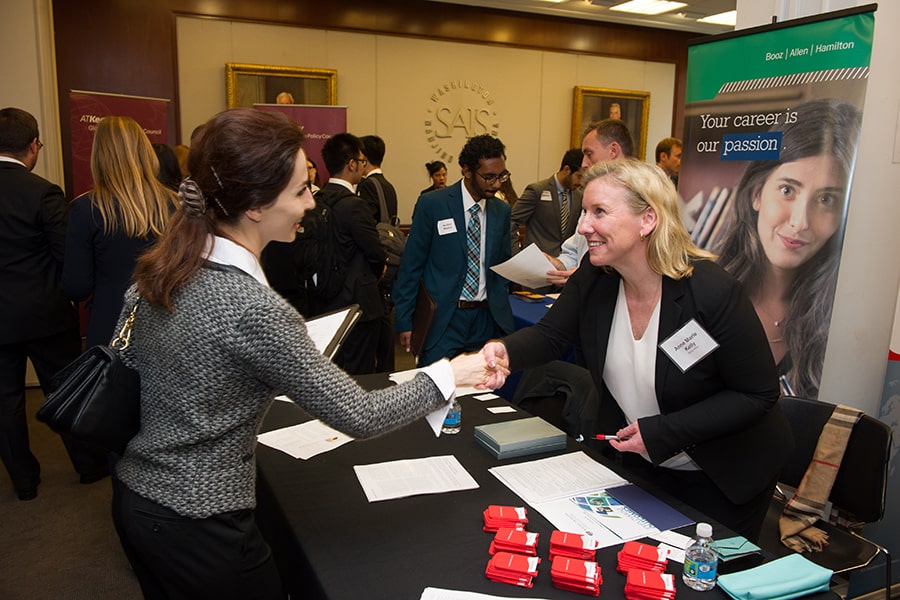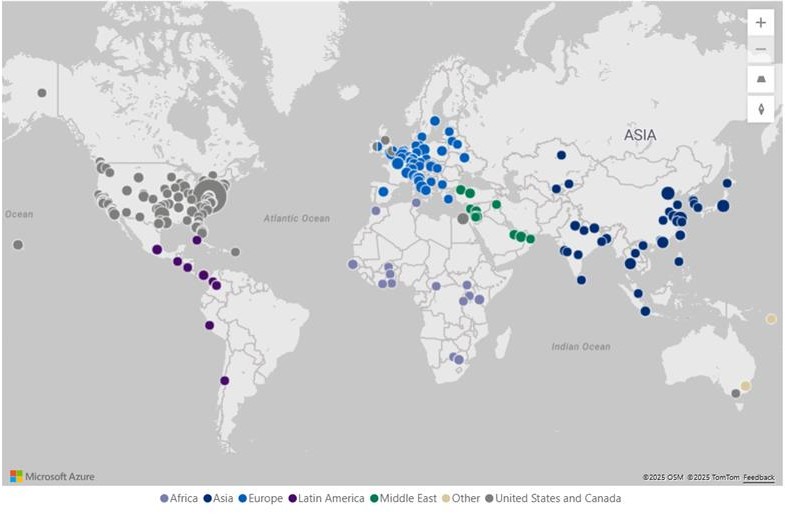Employment Outcomes

Our graduates are valued in the global marketplace and known for their ability to address multifaceted challenges across all sectors around the world. The Johns Hopkins University alumni network totals 260,000 talented professionals, including more than 24,000+ graduates of the Johns Hopkins School of Advanced International Studies (SAIS) working in dynamic roles.
Global Careers Employment Outcomes: Highlights

SAIS graduates from 2020 to 2024 went on to work in 85 countries and 317 cities around the globe.
OVER THE LAST 5 YEARS
Our global careers team has a proven track record for connecting talented students with rewarding career opportunities.
Recent Employers of MAIR Graduates